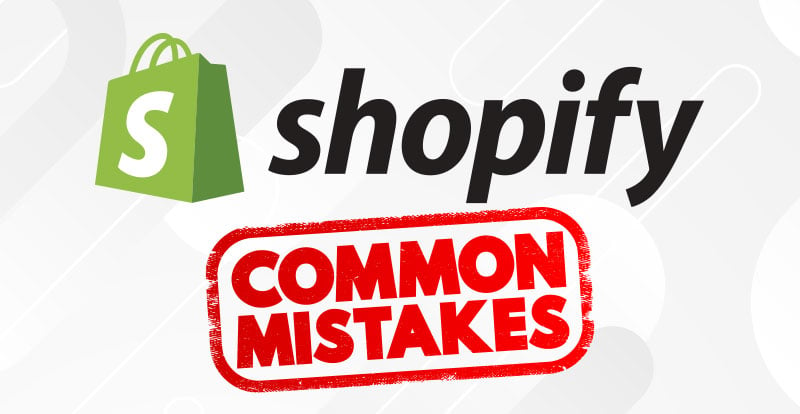Many of our clients use Shopify, and that occasionally leaves them vulnerable to scams. Considering that over 4 million users use Shopify daily, it should come as no surprise that there are scammers looking to take advantage of them. Unfortunately, most internet users will be scam victims at some point in their lifetimes. It might come as an email, SMS text message, or a Facebook message - but it’ll happen. The important thing to do is to prepare yourself. That includes familiarizing yourself with the most common Shopify scams and then learning the strategies on how you can avoid them.
There isn’t a Firewall against scams. At least, not yet. That’s why users need to make themselves aware of potential scams and pitfalls. Scammers aren’t exactly smart, that’s why they’re scamming in the first place. They’re lazy and they’re uncreative, which means that the text or email you got from a scammer is probably the exact same one that was sent to hundreds of others.
Scams aren’t a science and it doesn’t take a complex formula to understand them. So rather than waiting for your Shopify store to fall prey to one of the many scams going around, I decided to create a list to help you start the fight before it’s even begun!
Here’s a list of the most common scams on Shopify and what you can do to avoid them in the future.
We make some damn good websites.
Hit Us UpDifferent Shopify Scams
Paid Promotion Scams
This one is common on a lot of different social media platforms, but especially Instagram. When some businesses, or even influencers, are just starting out many of them actually pay to get their followings. That means for a few hundred dollars, any business could add over 1,000 followers to its Instagram page. Sounds like a good idea, right? Wrong.
Most users who fall for this scam will come to realize that those follower accounts aren’t real. They’re inactive bots who won’t engage with posts by commenting or liking. They’ll just be a hollow number at the top of the page that most users will recognize as bots and spam accounts.
Meta Deactivation Scams
This scam is less common but it’s certainly more malicious.
There will be instances where you get an email that claims one of your accounts has been hacked into. All you have to do to retrieve it is click on this specific link and log back into your account. The problem is that email isn’t from a reputable source and that link does not go to Shopify, Facebook, or Instagram’s login page. It’s a fake link to a similar-looking page that tricks users into submitting their login credentials.
Once you do log in to that fake page, you’ve given those scammers exactly what they were looking for.
Meta Copyright Infringement Scams
When Shopify users violate any sort of policy, they do their best to correct it as quickly as possible. That’s why the Meta Copyright Infringement scams are so nefarious. You get a message from the mighty Meta stating that your content is violating a copyright and you just have to click this link to fix it.
That link just includes phishing software that’s going to pull sensitive information from your site.
Shopify Store Deactivation Scams
The only thing worse than getting a copyright hit is getting a notice that your Shopify store is being shut down. This Shopify scam will once again lead to an influx of fake emails or messages stating that your store is about to be deactivated for violating some made-up policy or rule. Once again, the best way to absolve the issue is to immediately click their link.
That link then leads to a phishing website where thousands of victims have submitted their info and lost millions of dollars.
Meta TestFlight Invitation Scams
Most users would be ecstatic to try out new apps or software. When one of the most popular tech companies in the world asks you to download something, you might just be ecstatic to do that too.
Apple has its own testing platform called TestFlight, and that’s another avenue that scammers use to take advantage of their victims. Users will get a message or email requesting that they download an app to test a new service or app, then when the all-too-eager user downloads it they get tons of malware planted on their device and stolen data from their device.
Shopify Theme Counterfeit Scam
Shopify has thousands of different themes that are available to its users, but they don’t exactly monitor every single one of them.
Some scammers will use Shopify’s theme store as their hunting ground, creating themes that appeal to shop owners. Scammers will then claim that the theme is counterfeit and that you need to pay an additional fee to use it. If you don’t pay that “renewal fee”, you’ll face constant messaging, threats, and other phishing tactics.
LegalZoom/Registrar Scam
Unfortunately, due to legal reasons a lot of private information has to be available on the platform or with your LLC. That’s another avenue scammers will use to prey on you and your business.
By looking at your terms and conditions, users will typically be able to identify your registrar. Once they do, they’ll call or contact you pretending to be LegalZoom or a random government agency and, you guessed it, you need to pay a fee to make things right! Unfortunately, due to the data they were able to steal they’ve been able to convince thousands of vulnerable users to pay those fees.
That’s why it’s incredibly vital that you never make those payments over the phone.
Fake Government Trademark Question Scam
This scam is the worst of all and technically qualifies as a Federal crime. No one wants to become the target of a government agency, especially small businesses. So when a scammer contacts you pretending to be one of these agencies, that tends to cause panic. Most business owners will give whatever information they need to get the IRS off their backs, imagine what they do when they get questions regarding their trademark applications.
Once they get that personal information or a payment, the business owner has suffered yet another scam.
How To Avoid Shopify Scams
While a lot of those scams may have seemed obvious to you, I guarantee that somewhere an incredibly smart business person is currently falling for one. These scammers will do whatever they can to get your information or a small payment, and the best strategy to avoid that is by simply not letting them. Users need to scrutinize every contact or message they receive. Remember that most government agencies or companies will never call you over the phone to demand payments.
That’s not the only way to avoid Shopify scams though. Here are some strategies to keep in mind:
- Never make payments over the phone
- Check the email and domains of every contact you receive
- Use strong passwords and login credentials
- Educate yourself on new scam developments and happenings
- Never click suspicious links of any kind
- Take legal action and inform Shopify or any relevant parties about the scam activity
The person who’s best equipped to protect your company from scammers is you. This article is just the first line of defense, the rest is up to you. Scrutinize any contact information you get, keep login credentials private and secure, and don’t make payments to unfamiliar companies over the phone!





